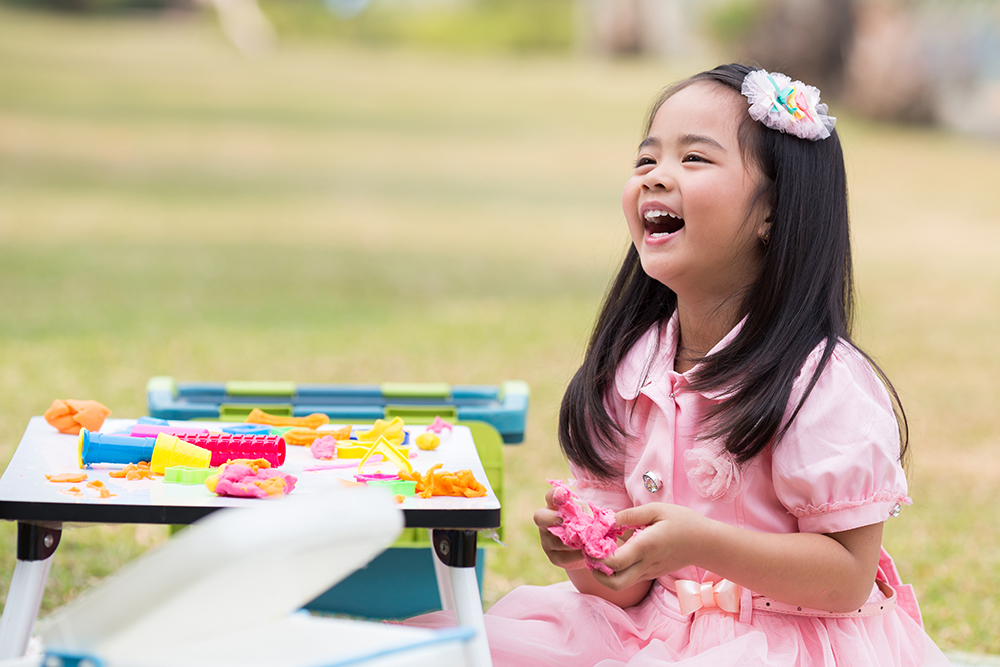Play – Serious learning or just having fun?
Is play really able to build a young brain? Or is it only about having fun? Actually it is both! One of the reasons why play is a powerful brain building activity is precisely because of the fun element inherent during play. When a brain is having fun and enjoying an activity or interaction, important chemicals are released in the brain that enhances memory and learning. Young brains learn best through playful, fun and purposeful activities, making guided-play an excellent way to build a developing brain.
In a guided-play session, there are usually serious learning objectives which a teacher or parent is hoping to achieve. However, the manner in which the activity is carried out is typically in a playful and fun format, with the child leading the play experience while being guided by the adult. A young child is constantly trying to make sense of the world, attempting to find meaning in every experience they encounter. As an example, while a baby probably does not find learning about the names of colours meaningful, they can thoroughly enjoy making colourful prints with paint (not all children find finger or hand painting fun though!). Having fun is meaningful to a young child, making them want to repeat the experience and thus creating practice opportunities. As the child repeats the play involving the colourful paints, he hears about the names of the colours repeatedly. Such experiences build important connections in the brains and over time, abilities, meaning and concepts are built.
Some parents bring adult learning styles to young children, thinking that learning only happens when there is proper “teaching” (e.g. showing, naming and spelling colours “r-e-d”) and “training” (e.g. repeatedly flashing cards to teach Math concepts). Again, these techniques have not been shown to be appropriate for little brains. Learning is most effective when babies are actively watching and DOING, or when concepts are tied to practical contexts (e.g. pressing the correct number to go up a lift makes numbers much more meaningful than repeatedly viewing them on flash cards).
During play, a child plays a very active role – moving, touching, manipulating, exploring etc. These are precious moments when important learning connections are being built in the brain – the brain is actively processing sensory information coming in from the eyes, ears, body and touch sensors, while at the same time coordinating with their muscles to perform an action. This flurry of activity between sensory and movement systems in the brain wires up brain connectivity – the key to abilities, performance and intelligence!






